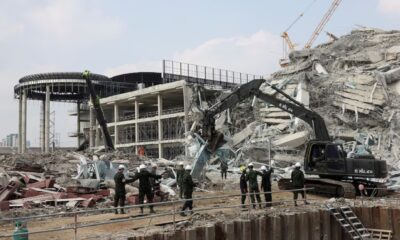Business
IMF, Afghanistan reach preliminary agreement over Extended Credit Facility
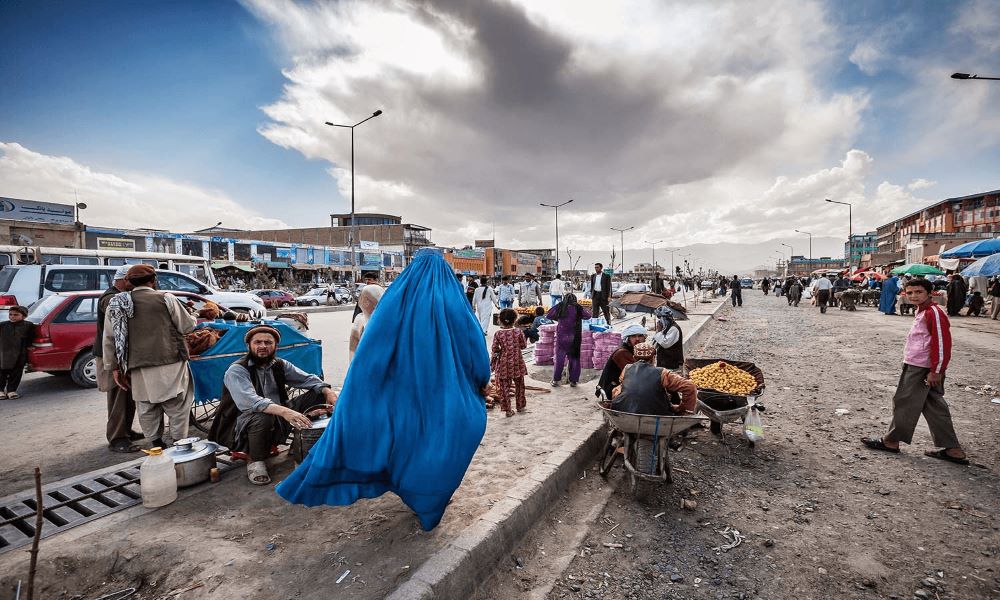
The International Monetary Fund (IMF) and the Afghanistan authorities have reached a preliminary agreement on an economic reform program to be supported by a new three-and-half year US$364 million Extended Credit Facility (ECF).
This announcement comes just three months before the United Nations’ donor pledging conference for Afghanistan gets underway.
In a statement issued by the IMF on Friday, the fund said the ECF will help mitigate the economic impact of the Covid-19 pandemic, maintain macroeconomic stability, and underpin reforms for economic resilience and good governance.
The fund also stated that continued financial assistance from international partners is critical to support objectives of Afghanistan’s National Peace and Development Framework for 2021-25, including inclusive growth, poverty reduction, and self-reliance.
Leading the IMF’s team was Azim Sadikov, and virtual discussions were held with Afghan officials through July and August on the country’s economic reform program.
Sadikov said however that the agreement is subject to the approval of the IMF’s Executive Board, which would possibly consider the agreement in October after preliminary conditions have been met by Afghan authorities, including the improvement of accountability and transparency in procurement processes.
“The new ECF arrangement will support authorities’ reform program to maintain macroeconomic stability and lay the ground for a sustained post-pandemic economic recovery while continuing to advance structural reforms,” Sadikov said.
He said the reform program aims to gradually reverse the fiscal decline due to the pandemic and instead create space for development sending while increasing self-reliance.
He stated improvements in customs collections and revenue administration need to be improved and the planned Value Added Tax (VAT) process needs to be implemented in 2022.
“Monetary policy will continue to focus on maintaining price stability and a flexible exchange rate regime, while fostering confidence in the Afghani,” Sadikov said.
He also said that reforms, in accordance with the new ECF arrangement, will focus on addressing issues that hamper economic growth and resilience.
“To that end, the program will aim to improve fiscal governance, strengthen the anti-corruption regime, and bolster the financial sector,” he said.
“Bolstering the financial sector, including by completing the reform of state-owned banks, will also be important to boost its capacity to contribute to growth.
“Coming before the November pledging conference, the ECF arrangement is expected to catalyze donor financing, which is critical to support Afghanistan’s reform and development objectives under the multi-year National Peace and Development Framework,” he said.
The pledging conference is organized every four years and was last held in 2016 in Brussels.
This year, Finland will host the conference, which will be organized by both the UN and Afghanistan.
Previous international financial commitments largely end by December of this year.
Business
36 mining contracts inked over the past year: Mines ministry

The Ministry of Mines and Petroleum says it has signed 36 large and small mining contracts, with a total value of $1.3 billion over the past year.
Officials from the ministry stated that these contracts include 10 large mines, 25 small mines, as well as projects related to cement, salt, marble, and a major gas extraction contract with Uzbekistan, all signed with both domestic and foreign companies.
Meanwhile, economic experts have emphasized the importance of increasing investments in the mining sector for the country’s economic growth. They have stressed that priority in mining contracts should be given to domestic companies.
“It is better to prioritize domestic investors over foreign ones,” said Kamaluddin Kakar, an economic expert.
In the meantime, members of the private sector also stated that if both foreign companies and Afghan investors can partner in the mining sector, this will not only foster investment development in the country but also bring positive changes in capacity building within the mining extraction sector.
Business
Afghanistan ships first consignment to Europe via Khaf-Herat railway
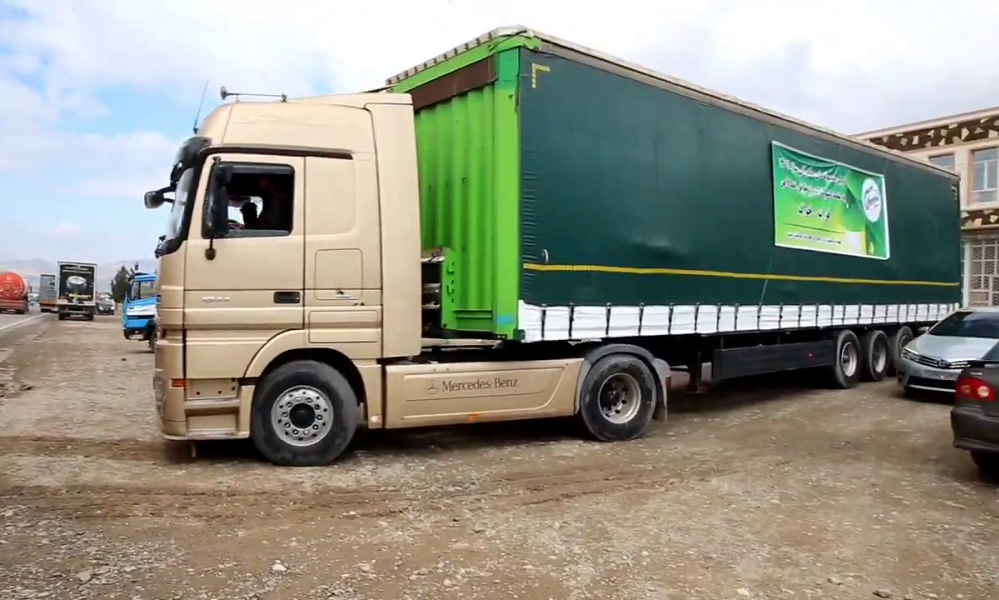
The press office of the Herat governor has announced the export of Afghanistan’s first shipment via the Khaf-Herat railway to Europe.
According to a statement from the office, the shipment includes 200 tons of dried fruits worth $1.2 million, which were exported to Turkey and Europe through the Khaf-Herat railway in the presence of Islam Jar, the governor of this province, and the Iranian Consul General.
The exported dried fruits in this shipment include pistachios, raisins, almonds, and pine nuts.
The statement added that over the past three months, more than 35,000 tons of goods have been transferred via the Khaf-Herat railway.
Business
Russia’s LPG exports to Afghanistan boom as Europe shuns it
The exports to Afghanistan, the main consumer of Russia’s LPG in the region, rose by 52% for the period to 71,000 tons.

Russia’s exports of liquefied petroleum gas (LPG) to Afghanistan and ex-Soviet states in Central Asia have jumped following introduction of European Union sanctions against Moscow at the end of 2024, industry sources said on Wednesday, Reuters reported.
The European Union’s sanctions against Russia’s LPG over the war in Ukraine took effect on December 20. The restrictions were proposed last year by Poland, one of Russia’s largest LPG importers.
LPG, or propane and butane, is mainly used as fuel for cars, heating and to produce other petrochemicals.
According to the industry sources, railway supplies of LPG from Russia’s plants, including the Kazrosgas joint venture with Kazakhstan, jumped to the region by 80% year on year in January – February to 140,000 metric tons, read the report.
The exports to Afghanistan, the main consumer of Russia’s LPG in the region, rose by 52% for the period to 71,000 tons.
Traders expect great scope for more supplies to Afghanistan, where annual demand for LPG is seen at around 700,000 tons per year.
-

 Sport5 days ago
Sport5 days agoACB names Afghanistan A squad for tri-nation series
-

 International Sports4 days ago
International Sports4 days agoIPL 2025: Last over drama; Ashutosh Sharma clinches win for Delhi Capitals
-
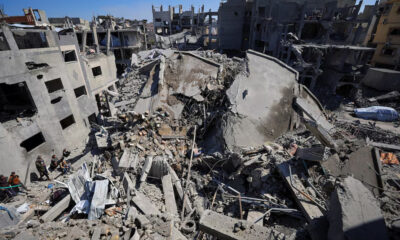
 Regional4 days ago
Regional4 days agoEgypt makes new proposal to restore Gaza truce as Israeli strikes kill 65
-

 Sport4 days ago
Sport4 days agoAfghanistan eliminated from Asian Beach Soccer Championship
-
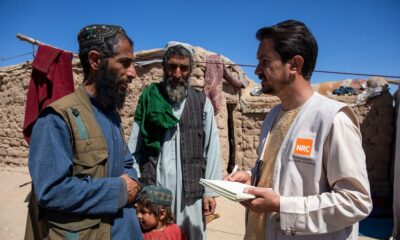
 Latest News4 days ago
Latest News4 days agoNorwegian Refugee Council cuts back on essential humanitarian services in Afghanistan
-
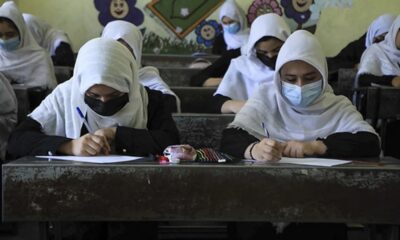
 Latest News4 days ago
Latest News4 days agoUN warns over 4 million Afghan girls will be deprived of education by 2030 if ban continues
-

 World3 days ago
World3 days agoSecretive Chinese network tries to lure fired US federal workers, research shows
-
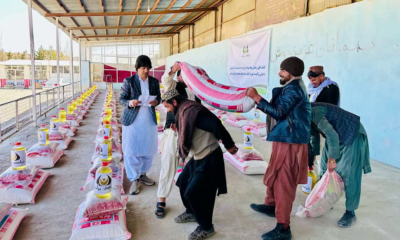
 Latest News4 days ago
Latest News4 days agoDozens of needy families in Ghazni get much needed food aid from Bayat Foundation












